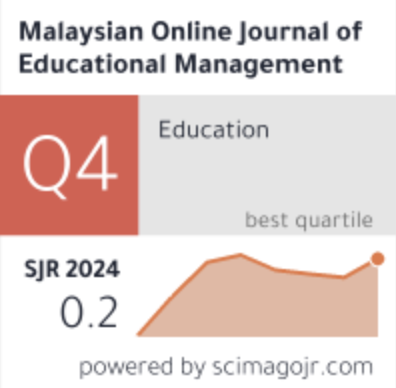TEACHER-STUDENT RELATIONSHIP MODEL IN MUHAMMADIYAH ELEMENTARY SCHOOLS' TEACHERS IN INDONESIA: THE MEDIATING ROLE OF EFFORTFUL CONTROL
DOI:
https://doi.org/10.22452/mojem.vol12no4.4Keywords:
Effortful Control, Religiosity, School Climate, Teacher-Student RelationshipAbstract
Previous research has consistently pointed out that student development is impacted by teacher-student relationships. Muhammadiyah, Indonesia's largest Islamic social organization, owns Muhammadiyah schools which include both elementary and secondary schools. Muhammadiyah elementary schools offer educational services indiscriminately. In Indonesia, there are more than two thousand Muhammadiyah elementary schools. Hence, research studies on Muhammadiyah elementary schools have a significant impact on the development of Indonesian education. This research uses the teacher as the subject rather than the student because teacher-student relationships are reciprocal. This study aims to identify the teacher-student relationship model in Muhammadiyah elementary schools using school climate and religiosity as predictors and effortful control as a mediator fit according to the teachers’ perspective. A quantitative method with a cross-sectional design is conducted with 429 teachers from various Muhammadiyah elementary schools as participants. This research uses four variables: school climate and religiosity as independent variables, teacher-student relationship as dependent variable and effortful control as mediation variable. The result of confirmatory factor analysis indicates that all measurements are fit. Data analysis using structural equation modelling shows that the teacher-student relationship is mediated by effortful control of the impact of school climate and religion on teacher-student relationships. The implication of the research is to develop effortful control training to strengthen the teacher-student relationships in the Muhammadiyah elementary schools’ environment.









